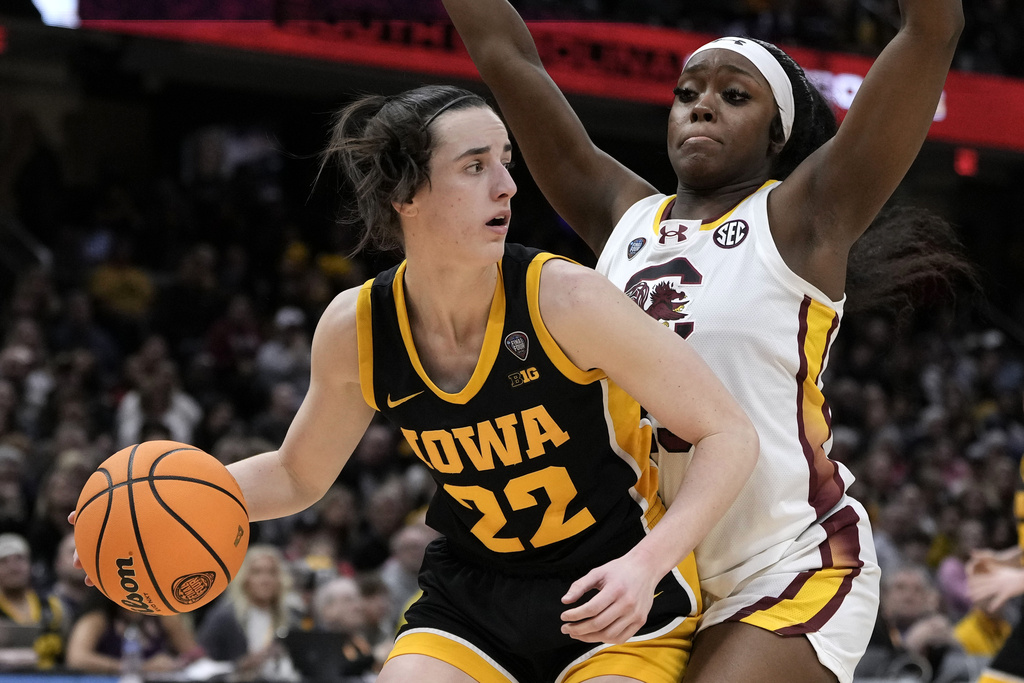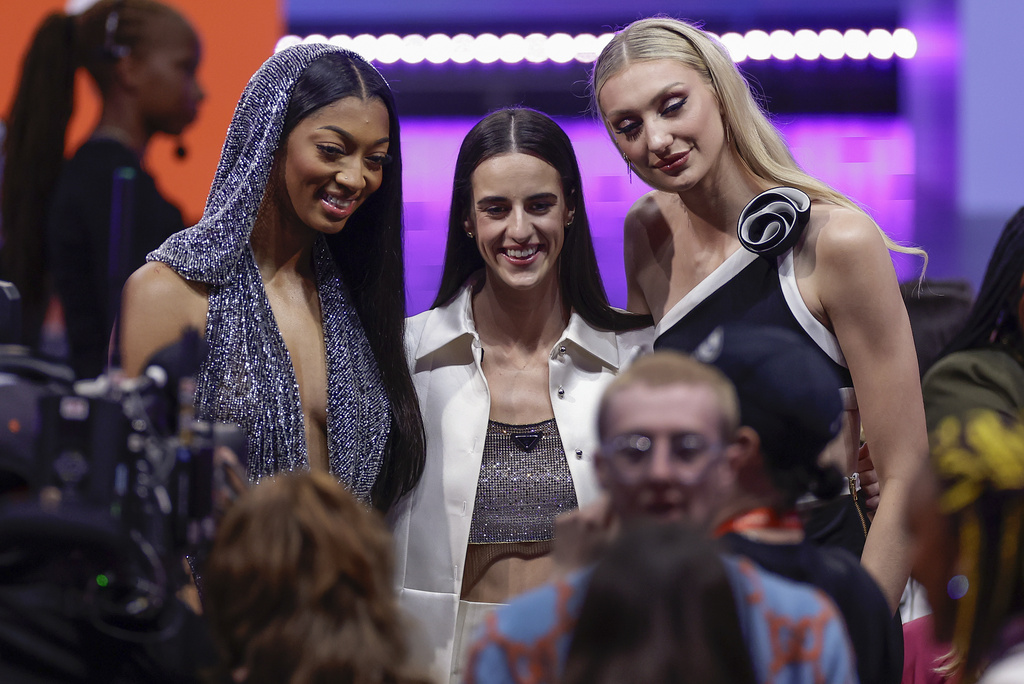University of Iowa women's basketball superstar Caitlin Clark continued her record-setting impact in the 2024 WNBA Draft on April 15th. The televised draft averaged 2.45 million viewers, a record high for the annual event, according to ESPN.
The Indiana Fever WNBA team selected Clark with the first overall pick. She headlined a super-popular draft class loaded with talent, including Angel Reese, Cameron Brink and Camila Cardoso, who were active this college basketball season and March Madness tournament.
The NCAA championship game featuring Clark and Cardoso peaked at 24 million viewers in the final minutes, making it the most-watched basketball game since 2019, according to Nielsen.
Get the latest news
Sign up for WPR's email newsletter.
This is just one example of how women's sports are closing the gap with men's sports in popularity, advertising revenue and ticket sales.
Mary Jo Kane has spent decades researching Title IX, women in sports, and media coverage at the University of Minnesota. She recently spoke on WPR's “Central Time” about Clark's influence and the current moment in women's sports.

The following has been edited for clarity and brevity.
Rob Ferret: What did this year's NCAA Women's Basketball Tournament mean to women's sports?
Mary Jo Kane: I truly think this has ushered us into a new stratospheric era. At last, we have a critical mass audience when we talk about a great athlete, a great competitor, a superstar – a supernova – Caitlin Clark. , men and women, and a critical mass of both television and mass media who finally figure it out. And of course, corporate sponsors. We have never been here before.
RF: How significant was Caitlin Clark's college career in creating excitement for the sport?
MJK: Unique, unprecedented. I talked with others about how great of a player she is, not just for women's basketball, but for women's sports as a whole and men's basketball. She's not just a rising star. She is a tsunami of influence and a tsunami of impact.
I think another thing about Caitlin Clark is that she's a winner. That's what Americans love. Under the brightest lights, on the biggest stage, under the most tension and stress, Caitlin Clark wants a ball. And Caitlin Clark has done it for the most part.
RF: People are looking forward to her matches, maybe against Angel Reese or some of the other guys who are all going to be pros, because she had some good guys to play against. It seems that the level of the players is also rising.
MJK: One of the great things that happened in the era of Title IX and the generation removed from 1972 is that girls today are, for the first time, growing up knowing that they have the right to play sports. They have access to scholarships, great coaching, conditioning, equipment, and competition from an early age. They're not used to hand-me-downs, and they're not going to settle for it. With each generation, we get bigger, stronger, faster, and better.
RF: Even though women are successful and getting attention on TV screens, do they get respect from their organizations?
MJK: They certainly get more respect than before. … When an organization like the NCAA underperforms, the response is, “Don't complain. Don't make trouble. Be happy with what we have.'' “This is acceptable.'' The reaction of “No” occurs instantly.
Another thing that has never happened before is that female athletes are taking to social media to make their grievances known to the world, and of course the NCAA. They're embarrassing and frankly embarrassing the NCAA by saying, “We'll do better.”
RF: Have we broken out of the cycle of news organizations not covering women's sports because they don't think anyone will watch it?
MJK: I certainly hope so. I think this shows that there is a vast, untapped, hungry and enthusiastic audience. What you're looking at is an incredibly talented, dedicated, disciplined, committed female athlete.
I think American companies have finally realized this. They're not doing this out of an altruistic mindset. They do it because they realize it's a huge investment for the brand.
State Farm Insurance, the country's sports advertising giant, has signed Caitlin Clark. She is the first college athlete, male or female, to sign with State Farm.
RF: How does the WNBA benefit from this great group of athletes turning pro?
MJK: Minneapolis is home to the Minnesota Lynx, who have won four WNBA titles. I'm already hearing from friends and colleagues, “When is Caitlin Clark coming here?” When will Indiana fever arrive? ”
People want to meet Caitlin Clark. I don't think this will become a once-every-four-years phenomenon like the Olympics. I believe we are at a moment of great change and a unique moment in women's sport.
Wisconsin Public Radio, © Copyright 2024, University of Wisconsin System Board of Governors and Wisconsin Educational Communications Commission.


